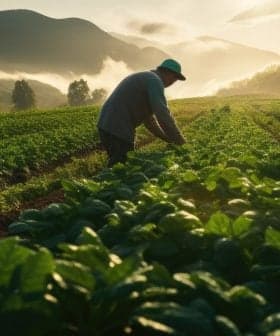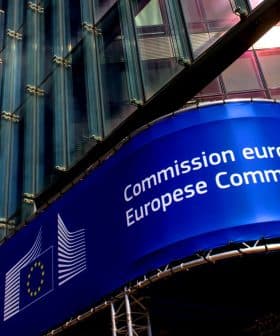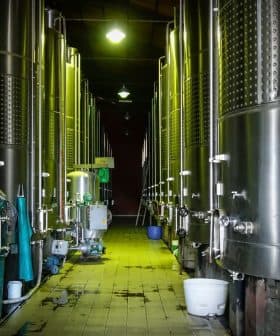Concern in Europe Over New Olive Oil Standards
The European Commission’s Advisory Group on Olives and Derived Products is monitoring the United States and Australia for potential mandatory quality standards that could impact the olive oil sector. Concerns were raised about the lack of a maximum residue level for the pesticide Chlorpyrifos-ethyl in the U.S., leading to rejected Italian olive oil shipments, while discussions also focused on improving data collection for better market insights.

European Commission’s Advisory Group on Olives and Derived Products Chairman Rafael Sánchez de Puerta Díaz
Europe’s olive oil sector is keeping a wary eye on the United States and Australia for any moves to introduce mandatory quality standards, the minutes of an E.U. consultation committee show.
And according to the draft report on the last meeting of the European Commission’s Advisory Group on Olives and Derived Products, there is demand for better data to allow clearer snapshots of the state of the olive oil market.
The recently published minutes of the June 14 meeting in Brussels also say that the E.U. would like the U.S. to introduce a maximum residue level for the pesticide Chlorpyrifos-ethyl in olive oil, because the lack of an MRL has seen various containers of Italian olive oil rejected in American ports.
Concern over possible U.S. olive oil marketing order
Under the agenda item “non-tariff barriers to trade,” some members of the group shared concerns over the possibility of the U.S. introducing an olive oil marketing order. The latter could lead to imports also being held to higher standards.
Among views expressed were that “Californians should comply with the same requirements as E.U. operators, so that we all play by the same rules”, and that “IOC (International Olive Council) standards should be adopted and applied to imports and domestic products in the U.S.”
A representative of the Commission said it was in contact with U.S. authorities, monitoring developments and trying to raise awareness of the issue.
The Commission also gave an update on its free trade talks with the U.S., indicating it was “willing to finalize negotiations by the end of 2015.”
Fear Australia’s olive oil standard could be enforced
Concerns were also aired over Australia’s olive oil standard, adopted in 2011, and whether adhering to it could cease to be voluntary in that country.
The Commission said the Australian government had confirmed the standard would remain voluntary “and there was no evidence that this could change any time soon.”
An industry representative asked the Commission to “remain cautious” on the matter, as the sector was not completely reassured this would be the case, “given that there was a lot of pressure from Australian producers.”
The Commission also said there were no plans to start free trade talks with Australia and this was unlikely to change in the near future.
Pesticide causing problems for US imports: chlorpyrifos-ethyl
Various containers of Italian extra virgin olive oil were rejected at U.S. ports earlier this year because they had traces of chlorpyrifos-ethyl, a pesticide authorized in the US for other agricultural products, but not for olive oil.
In a discussion on the problem, the Commission said the solution was to ask the U.S. Environmental Protection Agency to set an MRL for olive oil.
The Commission was ready to support such a submission and to raise the issue in bilateral talks, it said.
Desire for better market data
An overview of the olive oil and table olive markets — including provisional production, consumption, trade and carryover stock figures for the 2012/13 season, and the outlook for 2013/14 — led to discussion on the collection of such data.
At the group’s previous meeting, in December 2012, some members aired concerns about “inconsistencies” between the Commission’s data and that of the IOC.
At the latest meeting, the Commission reminded attendees that E.U. members must regularly provide it with information on their stocks and that the E.U. is obliged to communicate market data to the IOC.
The minutes say that many of the experts attending the meeting felt compiling an exhaustive balance sheet was very important, but “having comprehensive figures on the upcoming marketing year was more important.”
“The Commission representative advocated caution when putting the forecasts for the next year on paper, given that this could indirectly influence prices. In addition, much could still happen before the start of the harvest next October, such as adverse climatic situations,” the minutes also say.
Spain’s Olive Oil Agency collects market data in that country and publishes monthly reports on it.
A representative of producers in another country, supported by some trade representatives, asked the Commission to help other E.U. states collect similar statistics, including data on stocks, “as exhaustive as those in Spain, in order to improve the level of information available and provide a general overview of the situation for all market operators.”
The minutes say a discussion was then held “on how to improve the legal certainty of panel tests,” but no detail is given.
Implementation of E.U. Olive Oil Action Plan: new regulation on sampling and testing parameters
Among other matters discussed at the meeting, the Commission provided an update on implementation of its action plan for the E.U. olive oil sector, during which there was also discussion about its u‑turn in May on its proposal to ban refillable olive oil bottles from E.U. restaurant tables.
Producer representative said it was “unclear as to why the Commission had decided to withdraw the proposal.”
Meanwhile, the Commission said it had prepared a new regulation affecting “sampling and various parameters for chemical analysis” that it hoped would be put to a vote by the end of the year.
Role of the IOC
Given the international agreement governing the IOC expires at the end of next year, debate continued over how the council should evolve.
The Commission said it should play a strong role as the global guardian of quality and “reference point for standardization and balance sheets”.
And in a likely reference to the possibility of opening IOC membership to consumer countries, not just producer ones, the Commission said it was “time to start thinking about expanding its membership base.”
New chairman and vice chairman
With advisory group chairman Gennaro Forcella’s mandate at an end after two consecutive terms, a vote took place and Spain’s Rafael Sánchez de Puerta Díaz was unanimously elected to succeed him.
The advisory group has traditionally been led by Italians and Sánchez, director general of FAECA, the Andalusian Federation of Agricultural Cooperative Enterprises, is the first Spaniard to head it.
Rafael Pico Lapuente, also from Spain, and director of Asoliva, the Spanish Olive Oil Exporters Association, was voted deputy chairman, with one abstention.
Forcella has been president of Federolio, Italy’s olive oil trade association, since 1997.
EC Advisory Groups
The Advisory Group on Olives and Derived Products usually meets twice a year. Its next meeting will be in Brussels on November 12.
The Commission advises that opinions expressed by the working group represent the views of industry stakeholders and cannot be attributed to it.
Reports on the group’s meetings generally do not list the attendees nor name the source of the views expressed.









